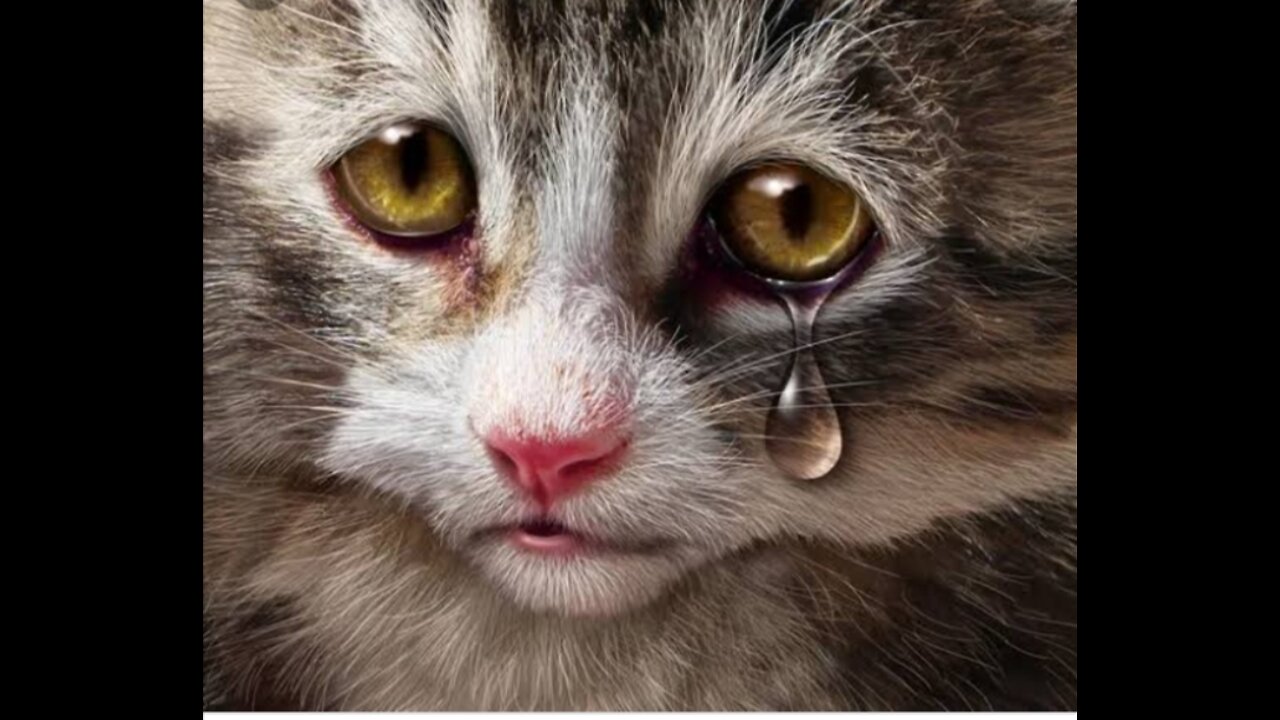Premium Only Content

😭😭A Baby Cat Crying mow -mow -mow
Cats lack the facial expressiveness of dogs, they’re generally quieter and their behaviors can be harder to interpret—but this doesn’t mean that the feline mystique is impenetrable. You can better understand your furry friend by paying attention to their vocalizations, body postures and daily routines. In time, you may become so attuned to your kitty’s personality and habits that you’re able to detect subtle changes in their mood and even recognize health problems before physical signs of illness appear.
Vocalizing
You'll learn a lot when you can interpret your cat's wide vocabulary of chirps and meows. They'll tell you when they're hungry, when they're feeling affectionate and if they're feeling threatened or in pain.
While some cats rarely make a peep, others won’t let you get a word in edgewise. Kittens who are handled often and well socialized may turn into more vocal adults and certain breeds, like Siameses and Abyssinians, are loquacious by nature.
Cats can also become increasingly vocal as they age. Two possible reasons for this are age-related dementia and deteriorating eyesight. A cat who feels anxious or confused may meow to seek reassurance. Hearing loss can also cause a kitty to vocalize louder than usual because they can’t determine their volume. (Any pronounced behavior change should trigger a trip to the vet to make sure your cat isn’t ill or in pain.)
Meowing is all-purpose; your cat may be using "meow" as a greeting, a command, an objection or an announcement. Some people have observed their cats walking around the house meowing to themselves.
Chirps and trills are how a mother cat tells their kittens to follow them. Aimed at you, it probably means your cat wants you to follow them, usually to their food bowl. If you have more than one cat, you'll often hear them converse with each other this way.
Purring is usually a sign of contentment. Cats purr whenever they're happy, even while they're eating. Sometimes, however, a cat may purr when they're anxious or sick, using their purr to comfort themselves, like a child sucking their thumb.
Growling, hissing or spitting indicates a cat who is annoyed, frightened, angry or aggressive. Leave this cat alone.
A yowl or howl (they sound like loud, drawn-out meows) tells you your cat is in some kind of distress—stuck in a closet, looking for you or in pain. Find your cat if they're making this noise. However, in unaltered cats, these sounds are part of mating behavior. If your cat is elderly, they may howl because they're disoriented, especially if suffering from a cognitive disorder, such as dementia.
Chattering, chittering or twittering
-
 LIVE
LIVE
LFA TV
12 hours agoDING DONG THE BILL IS DEAD! | LIVE FROM AMERICA 12.19.24 11am EST
1,811 watching -
 37:31
37:31
BonginoReport
4 hours agoShut It Down (Ep.108) - 12/19/2024
56.9K176 -
 LIVE
LIVE
Vigilant News Network
16 hours agoBUSTED: ‘The View’ Co-Host May Face Criminal Investigation | The Daily Dose
2,226 watching -
 2:02:09
2:02:09
Film Threat
14 hours agoSUPERMAN TRAILER LIVE REACTION | Film Threat Livecast
34.9K4 -
 47:27
47:27
PMG
10 hours ago"Hannah Faulkner and Jeremy Harrell | LIVE FROM AMERICA!!!"
339 -

2 MIKES LIVE
1 hour agoTHE MIKE SCHWARTZ SHOW with DR. MICHAEL J SCHWARTZ 12-19-2024
7.36K2 -
 4:45
4:45
Gamazda
15 hours ago $12.95 earnedGuns N' Roses - Sweet Child O' Mine
59.4K47 -
 1:25:28
1:25:28
CarlCrusher
17 hours agoUFO Plasma ORBs & Drones Above New Jersey | Catching REAL PROOF with Dr Jim Segala
51.9K22 -
 24:40
24:40
Degenerate Plays
1 day ago $4.11 earnedI Put A Bounty On This Phone Addict - Madden NFL 09 : Part 1
31.7K1 -
 18:29
18:29
Bearing
1 day agoCrazy Democrat Lady Thinks THE DRONES Are Coming For TRUMP & MAGA
28.6K60